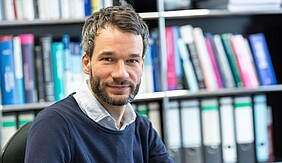Abstract
Multiple sclerosis (MS) is the most frequent inflammatory disease of the central nervous system (CNS). MS has been attributed to a breakdown of immune tolerance to self-antigens in CNS myelin resulting in focal immune cell infiltration, demyelination, axonal and neuronal degeneration, which eventually leads to long-term disability. Axonal and neuronal loss occur already early in the course of the disease and are decisive for clinical deficits in the patients. A growing body of evidence has suggested that the inflammatory insults in MS determine neurodegeneration by causing axonal and neuronal mitochondrial dysfunction, energy failure and alterations of ion exchange mechanisms. Here I report on the pathophysiology of neurodegeneration during chronic CNS inflammation with a particular focus on neuronal ion channel dysregulation that commend as target molecules for neuroprotective treatment strategies. We recently identified two ion channels (ASIC1 and TRPM4), which crucially contribute to maladaptive cation handling under inflammatory conditions. Moreover, it has been postulated by circumstantial evidence that inflammatory demyelination results in redistribution and upregulation of Na+ channels Nav1.2 (Scn2a) and Nav1.6 (Scn2b) along the denuded axolemma with disturbed axonal ion homeostasis and subsequent axonal degeneration. We investigated this long-standing hypothesis by generating a novel transgenic mouse that allowed us to directly investigate the contribution of Na+ channel currents to neurodegeneration in an animal model of MS.
CV
Manuel A. Friese studied medicine at the Universities of Hamburg, Oxford and University College London and received his MD in 2001. He completed his neurology training at the Universities of Tübingen and Hamburg. After his postdoctoral training at the University of Oxford from 2004 to 2008, he started his laboratory as an Emmy Noether research fellow of the German Research Foundation (DFG) at the University of Hamburg. Since 2013 he has been consultant neurologist and Professor of Neuroimmunology at the University of Hamburg and since 2014 director of the Institute of Neuroimmunology and Multile Sclerosis (INIMS). His laboratory focuses on inflammatory and neurodegenerative aspects of neuroimmunological and neuroinfectious diseases.
This lecture will take place on November 3, 2015 from 17:15 to 18:30 hours in lecture hall H1, Turmgebäude.
Host: Prof. Markus Schwaninger
Institute of Experimental and Clinical Pharmacology and Toxicology
University of Lübeck


